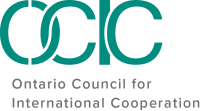
Jason Wong, 26, Toronto
Aga Khan Foundation Canada
As a Chinese-Canadian, Jason Wong has always been interested in the different backgrounds of people around him. After earning a bachelor’s degree in international development and geography, Jason bought a one way ticket to Nepal and worked with a micro-finance institution there for more than six months. He focused on creating new geographic information systems (GIS); maps that could connect borrowers and lenders who might live several hours apart due to the mountainous terrain. Ultimately, he discovered that micro-finance is dependent on social relationships, not physical geographic distance, and his project was unsuccessful. The journey itself was by no means a failure, however.
“It was a self-learning trip, [though] I didn’t realize it at the time,” Jason says. The experience fuelled Jason’s passion for learning across different cultures and the importance of location. “We’re all shaped by the physical environment around us. In the mountains people watch over each other more, because of the danger of rock slides. It’s also harder to grow crops there,” he adds. “[The land] changes from metre to metre as you go higher, creating layers of complexity.”

Jason’s involvement with mountain communities continued when he was chosen for a fellowship last year by Aga Khan Foundation Canada. In Kyrgyzstan and Tajikistan he worked in public education, encouraging more interactive teaching methodologies and locally relevant lessons.
“Tajikistan is in many ways just as multicultural as Canada,” Jason emphasizes, “and school lessons should reflect this to prepare their students for the complex environments they live in. The challenge is in changing Soviet-era mentalities, to encourage local field trips over memorizing old textbooks.”
On his own field trips Jason experienced examples of the valuable and context-specific knowledge locals have. “You can be in a town of a few hundred, and suddenly you walk into someone’s backyard and he’s a PhD botanist from the Soviet era, growing the only tomatoes in the area.”
Jason returned to Canada with a mission to highlight local knowledge and to explore how access to it can make society more pluralistic and tolerant. Drawing on his background in geography and cyber-cartography, Jason is now developing a collaborative mapping app in partnership with park rangers in Kyrgyzstan, as part of his master’s degree at Carleton University. “This is a process of training and empowering people,” he says. “If you encourage people to take a second look, they themselves will have a lot of information that they didn’t realize was valuable.”
Taking a community’s experiences into account ensures that the app will be most useful to them. In some northern Canadian communities, Jason says, “it’s not about how short the path is, but how experienced the elder is who’s giving the information. Otherwise, you might fall through the sea ice! We can understand certain spaces differently and more meaningfully from the perspective of different genders and minorities.”
Jason will soon return to central Asia to expand his work allowing communities to represent their own needs. “Among youth we wonder how we can make change—the first step is realizing we each have important skills and knowledge to share.”
Aga Khan Foundation Canada is an agency of the Aga Khan Development Network, a group which works to improve living conditions and opportunities for the poor in Asia and Africa.








